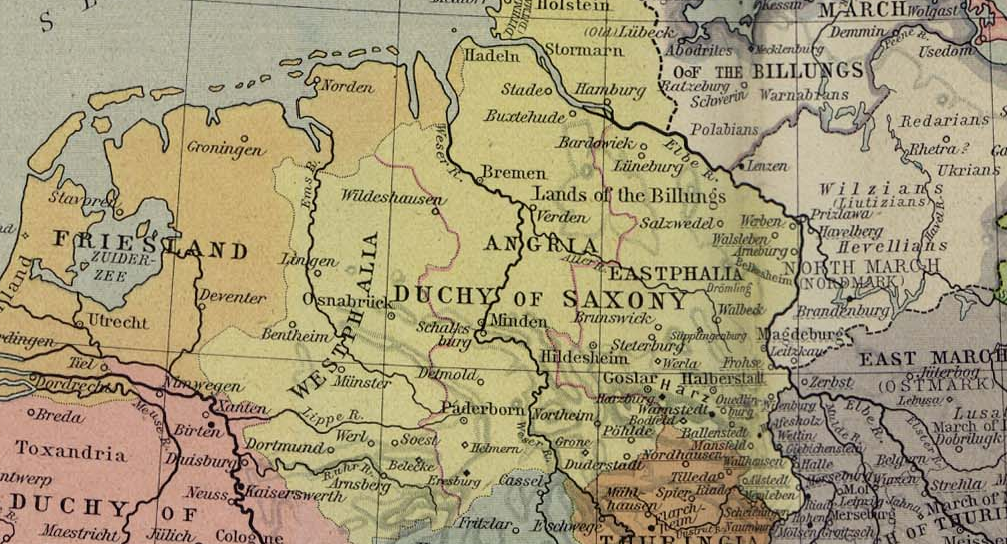
Otto of Nordheim
Otto of Nordheim (c. 1020 – 11 January 1083) was Duke of Bavaria from 1061 until 1070. He was one of the leaders of the Saxon revolt of 1073–1075 and the Saxon revolt of 1077–1088 against King Henry IV of Germany.
Otto of Nordheim
1061–1070
c. 1020
11 January 1083
Bernard, Count of Nordheim
Eilika
Life[edit]
Family[edit]
Otto was born about 1020, the son of Count Bernard of Nordheim (d. about 1040) and his wife Eilika.[1] The rich and influential Saxon comital dynasty of Nordheim was first mentioned about 950, its descendance has not been conclusively established: there is possibly a relationship with the Immedinger family of legendary Duke Widukind, while according to the Magdeburg archbishop Eric of Brandenburg, Otto's grandfather Siegfried I of Nordheim was a son of Count Siegfried of Luxembourg.
The Nordheim counts held large Saxon estates on the upper Leine and Werra rivers as well as on the Weser and its Diemel and Nethe tributaries and on the lower Elbe river. They also acted as Vogts (reeves) of the Corvey, Gandersheim, Helmarshausen, Bursfelde, and Amelungsborn. Otto succeeded his father as count of Northeim about 1049, then one of the most influential Saxon nobles along with the Billung duke Bernard II and the Udonid counts of Stade.
Role during the regency of Henry IV[edit]
After the death of the Salian emperor Henry III in 1056, his widow, Dowager Empress Agnes, appointed Otto duke of Bavaria in 1061[2] in order to gain his support as the mother of, and regent for, the young king Henry IV. The following year (1062), however, when Agnes handed power to her confidant Bishop Henry II of Augsburg, Duke Otto was among those princes who assisted Archbishop Anno II of Cologne in seizing control of Henry IV and the regency, in the so-called Coup of Kaiserswerth.[3]
Otto took a prominent part in the government of the kingdom during Henry's minority. He led a successful expedition into Hungary in 1063 to reinstall King Solomon (betrothed to Henry's sister, Judith of Swabia), who had been driven out by his uncle Béla I. The next year Otto went to Italy to settle a papal schism caused by the appointment of Antipope Honorius II. Otto was also instrumental in securing the banishment from court of the overly powerful Archbishop Adalbert of Hamburg-Bremen. He crossed the Alps in the royal interests on two other occasions and in 1069 shared in two expeditions into the lands of the Polabian Slavs (Wends) east of Germany.[3]
Character[edit]
Otto is described as a noble, prudent and warlike man, and he possessed great abilities. His repeated pardons showed that Henry could not afford to neglect such a powerful personality, and his military talents were repeatedly displayed.
About 1055 Otto married Richenza, formerly reckoned as a daughter of Duke Otto II of Swabia, but probably a descendant of the Billung dynasty. The couple had four sons and three daughters.[3]